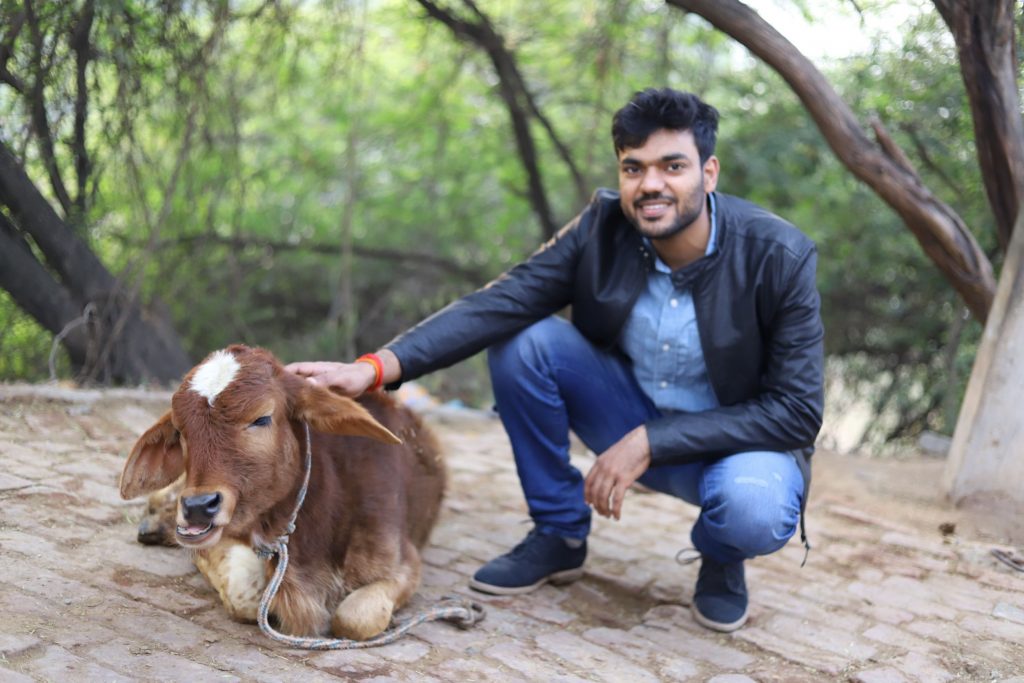19.1.2023: Shekhar Singh: Learn from the past, and work on the present to make a better future.
Shekhar Singh: Learn from the past, and work on the present to make a better future.
My Inspiration
कर्मण्ये वाधिका रस्ते मा फलेषु कदाचन। मा कर्म फल हेतु र्भूर्मा ते सङ्गोऽस्त्व कर्मणि॥
सुखदुःखे समे कृत्वा लाभालाभौ जयाजयौ। ततो युद्धाय युज्यस्व नैवं पापमवाप्स्यसि ॥
These two Shlokas are my inspiration for living life and doing research. The meaning of these Shlokas is that you have a right and control over your actions but never to any results of your actions. For the sake of duties and responsibilities, one should always treat happiness and distress, loss and gain, victory and defeat alike, and always think and do what is right without the worrying about the results of it.
With 4 years of research experience, I have specialized in different molecular genetic techniques with effective communication and writing skills. I also have been part of several clinical studies to understand the disease more efficiently. My research interests are in understanding epigenetic mechanisms in early neurogenesis and synaptic plasticity as well as neurodevelopmental disorders.
My journey
From the start, I had a strong interest in biology. As I began to study and learn more, my interest grew in genetics and neurobiology studies. More studies, research, and documentaries on different science channels about the brain motivated me think about the molecular mechanisms in neurons and how they control fundamental neuronal functions. I followed my passion, and earned B.Sc. (Hons.) degree in Genetics from MAKAUT, India and M.Sc. degree in Genetic manipulation and molecular cell biology from the University of Sussex, UK. During master’s degree, I took “Neuronal Plasticity and Gene Regulation” as a core subject and my master’s research project was in developmental neurobiology. After master’s degree, I continued my passion for neurogenetics and travelled to Taiwan. I worked there as a research assistant for 3.5 years at National Taiwan University and National Taiwan University Hospital. I handled two separate projects related to the Rett syndrome (rare neurodevelopmental disorder) and cerebral atrophy. CRISPR/Cas9 Knockout neuroblastoma cells, the patient cell lines and zebrafish model were part of my research.

Doctoral Research
To have the best knowledge and skills, I always wanted to do research at a well-acknowledged university in neuroscience research. Then I got to know about the MSCA Horizon 2020 Neuro-Innovation Ph.D. program. After finishing my project in Taiwan, I applied to the neuro-innovation Ph.D. program at, the University of Eastern Finland and I successfully got the position under the supervision of Dr. Riikka Martikainen and Prof. Dr. Reetta Kälviäinen.
My doctoral research project aims to develop an in vitro platform for preclinical investigations on Progressive myoclonic epilepsy type 1 (EPM1). We will study the pathophysiological mechanism of patients with EPM1 with an aspect to the design of possible and precise drugs or therapeutic techniques that could benefit the patients. The potential of using individual patient cells to build the model allows predicting drug responsiveness more precisely on a personal level.
The Specific aims of the project are:
- Establish patient-derived iPSC cell lines and gene-corrected isogenic control cell lines.
- Differentiation of stem cells into specific types of neurons and characterize the functional properties of the patient neurons.
- Test the efficacy and safety of candidate drug molecules on the patient cells.
My view on Neuro-Innovation Ph.D. Programme
The important thing about the Neuro-Innovation Ph.D. Programme is its diversity. In any research, it is important to consider points like sustainability, suitability, stability, and security in health, society, social, economic, and environment aspects. In the Neuro-innovation Ph.D. programme, people from diverse backgrounds are researching distinct aspects of neuroscience such as data management, social and health care, economic impact, legal rights, and many more. This makes the Neuro-innovation Ph.D. programme not just multidisciplinary but multidimensional as well. This opportunity will help me gain more experience and detailed knowledge so I can work on my future projects.
All my experiences, projects, and assignments so far have helped me develop essential qualities like leadership, communication, organization, and critical thinking in terms of the various aspects relating to the optimizations in experiments, time management skills, and the ability to work individually, and as part of a team. I’m thankful to all my current and previous supervisors who shaped my thoughts and made me more motivated toward my research interests, which always makes me one step closer to achieving my aims.